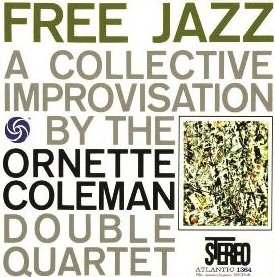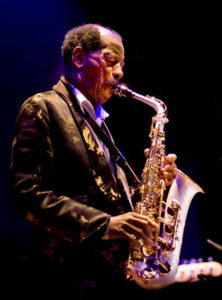May 04 2018
Jazz Music in North America
Alicia Bell
GEO 131
April 27, 2018
Professor Marshall
Blog Post
Region: North America
Topic: Music – Jazz
Jazz is a genre of music that originated in the United States, specifically in New Orleans. It began in the late 19th and early 20th centuries and was heavily influence by blues and ragtime genres of music. Jazz has been known to be deeply rooted within black culture, but other cultures have contributed to it as well. Jazz in New Orleans began in the early 1920s and is now a symbol of the city itself. Jazz has morphed into different forms over the years such as: cool jazz, free jazz, and modal jazz. All are variations of the original, but have surfaced due to other cultures changing it to make it more their own style.
For my project, I chose to specifically focus on free jazz. It is a form that was “first developed in the 1950s and 60s as musicians attempted to alter, extend, or break down jazz convention, often by discarding fixed cord changes or tempos.” (Wikipedia) Ornette Coleman was seen as “one of the major innovators of the free jazz movement”. (Wikipedia) He is an American musician and composer born in Fort Worth, Texas. During his career, he was always known for his unorthodox style of playing and singing. In 1960, Coleman recored his first free jazz album, which lasted about 40 minutes and was by far his most controversial piece of writing. It was very different from works seen in the past due to the interesting playing techniques used. At one point during the song, the drummers were playing at two different tempos while their were also random solos from each member throughout the piece. Coleman on this album plays along with a drummer, Billy Higgins, a trumpeter, Freddie Hubbard, a bassist, Scott LaFaro, and others such as Eric Dolphin, Gunther Schuller, and Charlie Haden.
“Ornette Coleman originally intended ‘Free Jazz’ as simply an album title, but his growing reputation placed him at the forefront of jazz innovation, and free jazz was soon considered a new genre.” (Wikipedia)
When I listened to the song I found the different sounds interesting and different in a good way from other musical pieces I have listened to before. It was refreshing to hear something other than the usual routine popular songs found on the radio today. It kinda reminded me of something that would play in an upscale steak house or in a small coffee shop. At first it sounded soft of offbeat and wack but after listening to the almost forty minute piece I found a peaceful beauty in it. Sometimes jazz can sound receptive and boring to me but the piece incorporated different sounds every now and then to make it interesting. The different sounds was originally disliked by most by overtime it grew in popularity and was later recognized as a great musical piece of the time.
He released his last piece of music in 2006, which was a live album called ‘Sound Grammar’. This was his first release in 10 years and a year later it won a Pulitzer Prize for music, making him the second only jazz musician to win the prize. Coleman was awarded an honorary doctorate in music from the University of Michigan five year before he passed away due to his musical contributions to society.
En.wikipedia.org. (2018). Free jazz. [online] Available at: https://en.wikipedia.org/wiki/Free_jazz [Accessed 3 May 2018].
En.wikipedia.org. (2018). Free Jazz: A Collective Improvisation. [online] Available at: https://en.wikipedia.org/wiki/Free_Jazz:_A_Collective_Improvisation [Accessed 3 May 2018].
En.wikipedia.org. (2018). Jazz. [online] Available at: https://en.wikipedia.org/wiki/Jazz [Accessed 3 May 2018].
En.wikipedia.org. (2018). Ornette Coleman. [online] Available at: https://en.wikipedia.org/wiki/Ornette_Coleman [Accessed 3 May 2018].

